Teaching as Inquiry Project Plan
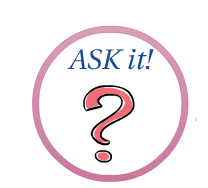
If I use an online template with my year 7 & 8 students, will it help them improve the quality of their own student inquiries?

Statement
I will be examining the topic of student inquiry in the intermediate years. My Teaching as Inquiry project will investigate - and hopes to measure - the impact that providing a template will have on my students’ learning in terms of their engagement, progress and achievement.
I wish to confirm a) that providing a template would make the learning process visible and therefore easier for the students to achieve and b) that if the students knew what was expected then their engagement would not be hindered by uncertainty of task.
This topic has arisen following my literature review which looked into 21st Century skills. Inquiry Based Learning (IBL) is considered an effective model for the 21st Century, however what the research left unanswered was the role teachers played during this inquiry process. According to Kirschner et al, minimally guided instruction is ineffective and an inefficient way to teach (Kirschner et al, 2006). They described this approach as one where the learners, rather than being presented with essential information, must discover or construct essential information for themselves. I can relate to this as our school has recently introduced inquiry and therefore this investigation is driven by the desire to address effective ways to teach inquiry in order to achieve improved learning outcomes.

Research Topic & Key Questions
Topic Question:
- If an online template is provided to students for guidance, will their resulting knowledge about structure and content help them improve their own student inquiries?
Key Questions:
- To what extent will providing a template beforehand increase student achievement?
- How will this approach impact student progress? How will this be measured?
- Will clarity around the task improve student engagement towards their inquiry?
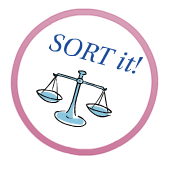
Justification
Inquiry learning is an integral part of 21st Century education. Inquiry learning, based on constructivist theory, is one that is student-centered, Inquiry learning is an integral part of 21st Century education. Inquiry learning, based on constructivist theory, is one that is student-centered, invesitigates real-world problems and allows students to construct their own knowledge and bring personal ideas and concepts to the learning experience (Kuhlthau et al, 2007). After completing a literature review on effective teaching in the 21st century, I have found very little evidence of how Inquiry Based Learning can be implemented effectively.
Most of the research I conducted compared models deemed to be effective for a 21st century learning environment and I aim to look into Inquiry in particular as it is new to my school. Given that it is new to my school I want to gather data as to the effectiveness of the Inquiry model with my intermediate students.
Another reason for choosing this topic area is to promote student voice. Last year, at the end of Term 4, I gave the students a week to “do whatever they wanted”. I had seen examples of Genius Hour and modelled my program on that of Google’s 20% time. For the last week of term, students carried out a project of interest. The projects ranged from writing adaptions of fairy tales to teaching the class how to dodge in a rugby game. Students were highly engaged and to this day still ask to do it again. I hope that this student engagement and motivation can be achieved again through effective teaching of Inquiry.
My focus will be on the areas of:
- Measuring the efficacy of using a template as a means of addressing the lack of student clarity and engagement.
Kaupapa Maori + Te Noho Kotahitanga
During the inquiry project, aspects of Kaupapa Maori; Te Noho Kotahitanga as well as the values and principles of The New Zealand curriculum, will be incorporated as appropriate.
- The Kaupapa Maori principles of Tino Rangatiratira (self determination); Ata (developing and nurturing respectful relationships) and Ako Maori (culturally preferred pedagogy) as well as the corresponding elements of Te Noho Kotahitanga, namely Rangatiratanga (authority and responsibility); Ngākau Māhaki (respect) and Wakaritenga (legitimacy) align well with the self-directed learning aspects of Inquiry learning. By guiding students through the process of inquiry, I will enable students to develop perseverance, respect, collaboration and cultivate their own learning style.
- To develop their Mahi Kotahitanga (co-operation), they will have opportunities to work with each other as well as conference with me which will further enhance their Kaupapa (collective philosophy).
- Given that these inquiry projects go beyond the classroom, involvement of whanau addresses the principles of Taonga Tuku (cultural aspiration) and Kaitakitanga (guardianship), as whanau are an important aspect in students’ learning.
- Both the principles of Kaupapa Maori and the elements of Te Noho Kotahitanga link with the values and principles within the New Zealand curriculum as well as the key competencies, which are directly aligned with 21st century education.
Community
The teaching as inquiry project will include the following communities:
Year 7 & 8 students - One conjoint class, taught by me will be carrying out their own student inquiries. In order for comparative data to be gathered, I will compare my findings with another class who is not using the provided models.
Another class teacher - Bianca Clarke will be the teacher involved in the comparative study. She will be able to assists in gathering and interpretation of data.
Whanau of the students - Our class currently uses SEESAW which is a blog that parents have access to. Whanau will be informed of the inquiries through the blog and be encouraged to provide input where necessary. This will foster communication and increase the involvement in the learning of the students.
SLT - Support from the Senior Leadership Team is essential as this may have implications for report comments. If this is successful then it may be used school-wide.
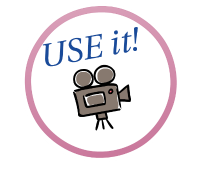
Scope & Reflection
What will the project entail?
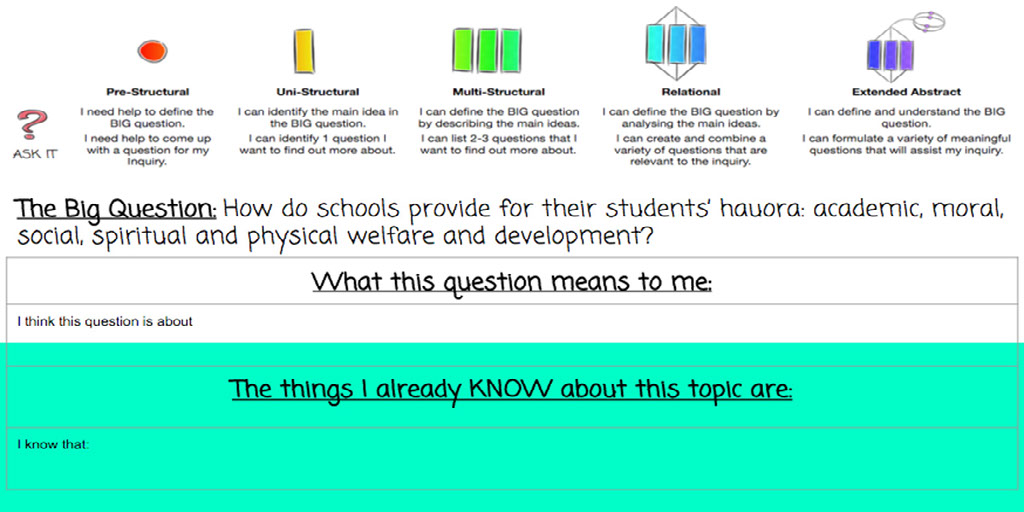
- Before beginning a new inquiry project, students will be given the template.
- Students will work in groups to examine the success criteria for each step of the inquiry process, e.g Ask It, Find It.
- Once students have identified areas of importance, then scaffolding of students can occur.
- Data will be gathered; interpreted and shared with community and colleagues.
- Students will have online access to their own template which includes the success criteria.
When will the project take place?
- During Term 2, a new inquiry takes place each term. Before we begin, we can look at the template and examine our next learning steps based on the Inquiry results the term before.
- This will continue over Terms 2 and 3.
- The research questions will be answered according to achievement objectives and success criteria, while comparing to another class. Reflections will occur throughout.
- Parent-teacher interaction through SEESAW will offer insight into whanau perspectives.
How long will the inquiry be?
- Base line data will need to be gathered,Inquiry results from the previous term. (i.e No scaffolding or templates given as opposed to being given templates and scaffolded).
- Will run over two terms to compare sets of results.
How will data be gathered?
- My class results will be compared from Term 1 - End of Term 2 and again in Term 3, using the assessment rubric. (The difference this time will be that students will see this rubric and be actively monitoring their progress using the template as a guide).
- My class results will be compared with that of another classroom teacher who is not using my approach.
Qualitative Data
- Student Voice - Students will be surveyed as to their preferred learning (no template vs template); their perceptions of their progress and their feelings towards the inquiry.
- Students will be observed in class in terms of enthusiasm; how has analysing the success criteria helped them seek clarity over their inquiry. How does having the template assist them?
- Whanau input via a survey on SEESAW.
- Teacher’s input from Bianca during a meeting.
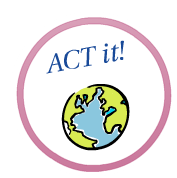
Stages at which I will engage with the community
Throughout this Teaching as Inquiry project, I will be engaging with the communities involved on a number of occasions;
- I met with Bianca Clarke and discussed my plan with her and asked whether she would be on board with the idea. We discussed what the project would entail as well as refining my research question based on her feedback.
- I will engage with the students before, during and after the inquiry phase and keep them informed along the way. I will seek their input in terms of conferencing with them and through surveys, to answer my research questions.
- I will engage with whanau through the blog as they will be able to see their student's work as well as a copy of the template.
- I will engage with my colleagues and SLT to share the gathered data as well as discuss implications and/or successes.
Feedback/Peer Evaluation
FEEDBACK QUESTIONS:
- How relevant is this inquiry project? Is it pertinent?
- Are my questions appropriate or should they be refined?
- What are some of the potential impacts of this inquiry?
Reflection on Peer Feedback
Feedback was sought from three colleagues as well as a Mindlab Moderator on the relevance and focus of this inquiry:
- Bianca Clarke, a colleague from my school who will be carrying out the project with me.
- Mike Tolley, a colleague who is part of the Senior Leadership Team
- Lou Bray Burns, the principal of my school.
- Truman Pham, a Mindlab moderator.
I had emailed them all a brief outline of what my overall plan might be and essentially wanted feedback on the relevance and appropriateness of my topic and research questions before I went any further. The feedback reflected;
- The original question could have been more specific.
- How I was going to measure student progress.
- If this was an online template, how did this affect those who don't have access to their own device.
- If the students were given a template then would that feel too structured and therefore take away from that, "take it where you want it" nature of inquiry.
What I changed:
- I changed my original question; If an online template is provided to students for guidance, will their resulting knowledge about structure and content help them improve their own student inquiries? to my current one that is better suited.
- In order to measure student progress, they would compare their results from Terms 1 & 2, using the rubric, and they would fill out a survey - see link above.
- Students could choose to use a paper copy and work in their books and those without their own device have the option to use the class chromebooks as the template is available through Google Docs.
- In terms of the template being too structured, some students may not dive into the inquiry as much if they see the template as boxes to be filled. I will get around this by referring back to the success criteria and re-iterating the use of this template as a guide.
Evaluate potential impact of findings
The purpose of this Teaching as Inquiry is to transition my teaching practice from a minimal guided one to one where I am effectively scaffolding students with their own inquiries. If I am successful then students will develop and enhance the skills needed for life-long learning. They will have a deeper understanding of the inquiry process and hopefully having been provided with a model, they will be able to apply this process across other areas of learning. Once they are clear about what steps they need to take in order to be successful then their engagement will increase as they will feel confident about the process. I will be able to engage more positively with the students as they will know what is expected rather than being frustrated when they don’t get it. It will allow me to spend more time with each student as I will be able to conference independently and deepen the student’s understanding through questioning. Students will be able to share their learning with whanau who will gain an appreciation for the learning of their students as well as strengthening relationships.
Lastly, if this approach works then the SLT may look at the success criteria we have produced and create a shared resource throughout the school. This may even given teachers, as well as students more clarity into how Inquiry works and how to teach it effectively.
References
Friesen, S., Scott, D., Snyder, S., Mourshed, M., Chijioke, C., Barber, M., ... & Canadian Education Association. (2013). Inquiry-Based Learning: A Review of the Research Literature. Galileo Network.
Johnson, B. (2015). TEACHER PREPAREDNESS IN INQUIRY-BASED LEARNING (Doctoral dissertation, CALIFORNIA STATE UNIVERSITY, NORTHRIDGE).
Kirschner, P. A., Sweller, J., & Clark, R. E. (2006). Why minimal guidance during instruction does not work: An analysis of the failure of constructivist, discovery, problem-based, experiential, and inquiry-based teaching. Educational psychologist, 41(2), 75-86.
Kuhlthau, C., Maniotes, L., & Caspari, A. (2007). Guided Inquiry: Learning in the 21st Century. London: Libraries Unlimited.
Moore, E. B., Mäeots, M., & Smyrnaiou, Z. (2016). Scaffolding for Inquiry Learning in Computer-Based Learning Environments. In New Developments in Science and Technology Education (pp. 87-95). Springer International Publishing.
Pedaste, M., Mäeots, M., Siiman, L. A., De Jong, T., Van Riesen, S. A., Kamp, E. T., ... & Tsourlidaki, E. (2015). Phases of inquiry-based learning: Definitions and the inquiry cycle. Educational research review, 14, 47-61.